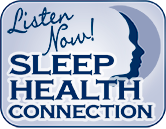Be Thankful for a Good Nights Sleep!
Do you wake up every morning fully rested and ready to start your day?
If you answered yes, then you have many reasons to be thankful. Millions of Americans do not get the sleep they need; in fact, 40 million Americans suffer from over 70 different sleep disorders.
The first signs of lack of sleep:
- Irritability
- Moodiness
- Reduced Inhibition
Lack of sleep becomes more serious, when you are not able to catch these warning signs and get the rest you need.
A few signs of continued lack of sleep:
- Lapse in attention
- Dozing off during activity: work, reading and even driving
- Impaired Memory
- Apathy
You may notice yourself being forgetful, or irritable, but what you may not notice are the hidden signs. These signs are life-threatening, including: hypertension and increased risk of strokes, weight-gain, erectile dysfunction and much more.
What can you do to help yourself get the sleep you need? Set a sleep pattern for yourself and get yourself into a regular sleep routine. Start with the minimum of 7 hours for a consecutive week. If you awake unrested, add 30 minutes each night until you notice your alertness return.
If you believe you may be suffering from a sleep disorder, please, consult with you physician and let him/her know your concerns.
Make changes today to give yourself a better day tomorrow. Call our office in Northern Illinois 1-800-SNORING OR 630 369-5508, or visit our website: http://www.tiredofsnoring.com/ for more information on how we can help you get the sleep you need.






(630) 369-5508